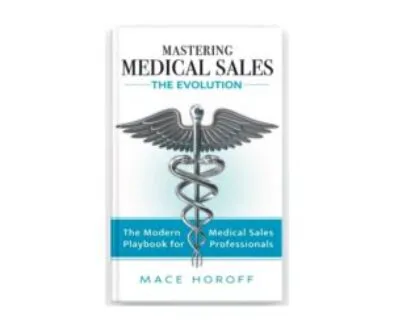Healthcare Sales: Watch Your Attitude. Don’t Lose Altitude.
Our attitudes send out strong messages whenever we are interacting with a customer.
Early in our business relationships, our attitudes are always up. We all present a positive,
“can-do” attitude to the customer as the relationship climbs.
Our goal in medical device sales is to reach a level with the customer where we are the
first one that he calls whenever he needs something that we might be able to provide.
Notice that I used the word “might” since my goal is to get the customer to call me first,
even if it involves a product that I can’t deliver. I may not be able to provide one-stop
shopping in all situations, but I can come close to becoming a one-stop resource. The
goal is to get him to call me first!
I always talk with my competitors at every opportunity, not only to gather intelligence and
assess them as competitors, but also to find out what they can offer a customer that I
cannot. There were times when I was a competitor’s best sales person for non-
competing products! Whenever I saw an opportunity with the surgeons I called on to tell
them about a product that would make their lives easier and improve the outcomes for their
patients, I let them know – whether I sold the product or not. This one action frequently
elevated my resource status in the surgeon’s mind to a higher “altitude.”
When flying an airplane, one of the key things used to maintain altitude is maintaining
attitude, which essentially means to keep the nose of the airplane pointed in the direction
you want it to go. It’s very true in selling as well – we spend much time creating a
perception of our abilities to solve problems with the customer. This places us at a high
“altitude” in that customer’s mind by providing value as a resource.
Too many medical device reps climb to a comfortable altitude with a customer, and then
they start to change their attitude. Suddenly, when they become busy and successful in
their territories, they become too quick to tell a customer that “we don’t carry that product”
or “I don’t have a solution to your problem.” This is where you can start “losing altitude”
with your customers.
Getting back to my flying metaphor – when pilots reach a cruising altitude, they hate to
give any of it up, except when they are landing. You see, it took a long time and a lot of
energy to reach that altitude. If the pilot needs to descend for some reason, he will have
to expend additional energy and time to get back up to altitude. Plus, climbing slows down
the forward momentum of the airplane. Are you starting to get this?
My response, whenever a customer would call me with a problem that I did not know how to
solve, was “Doctor, I know there is an answer to this problem. Let me do a little research
and I’ll give you a call back.” Doctors are busy people. If they know that they can unload
a problem from their busy minds with one phone call, whenever they have a problem, who will
they call? They will call their number-one resource and provider – and you want that to be you!
It’s easy for a rep with a busy territory to just say, “Sorry, we don’t make anything to help
your patient” and be done with it. But consider the conflicting message that this sends.
You’ve been banging on the customer’s door, telling him to call you whenever he needs
something, and now when he calls, you tell him you can’t help him? That’s a change of
attitude and it will result in you losing altitude with that customer.
As medical sales people, we invest a lot of time and effort reaching an altitude with our
customers that creates sales success. Change your attitude, even a little in the wrong
direction, and your altimeter will start to unwind. Before you tell a customer “no,” see if
there is some way you can help him solve his problem. There might not be any money in it
for you at that moment, but I promise you – the money will eventually follow.


